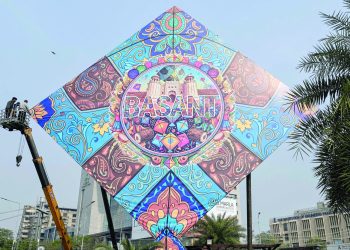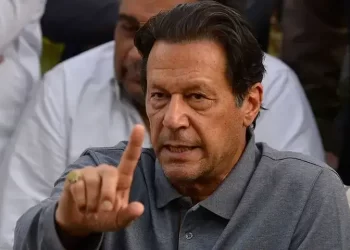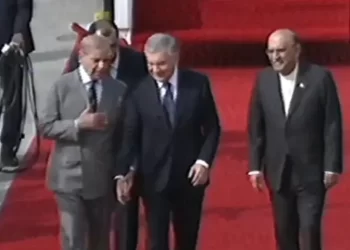Israel rejected global calls on Thursday for a ceasefire with the Hezbollah movement, defying its biggest ally the US and pressing ahead with strikes that have killed hundreds in Lebanon and heightened fears of an all-out regional war.
The US, France and several other allies urged an immediate 21-day ceasefire across the Israel-Lebanon border. They also expressed support for a ceasefire in Gaza.
Nearly 700 people been killed in Lebanon this week, according to Lebanon’s health ministry, as Israel dramatically escalated strikes, saying it is targeting Hizbollah’s military capacities, AP reported.
An Israeli warplane struck the edges of the capital Beirut, killing two people and wounding 15, including a woman in critical condition, Lebanon’s health ministry said. That took deaths from hits overnight and during Thursday to 28.
The strike killed the head of one of Hizbollah’s air force units, Mohammad Surur, two security sources said, the latest senior Hizbollah commander to be targeted in days of assassinations hitting the group’s top ranks.
Smoke was seen rising after the hit near an area where several Hizbollah facilities are located and many civilians also live and work. Hizbollah’s Al Manar TV broadcast images of a damaged upper floor of a building.
On the Israeli side of the border with Lebanon, the army staged an exercise simulating a ground invasion — a potential next stage after relentless airstrikes and explosions of communications devices.
Israel’s air force is planning to assist troops in the event of a ground operation and will stop any arms transfers from Iran, Air Force Commander Major General Tomer Bar said late on Thursday.
“We are preparing shoulder to shoulder with Northern Command for a ground maneuver. Prepared, if activated. This is a decision to be made above us,” he told soldiers, in a video distributed by the Israeli military.
Israel has vowed to secure its north and return thousands of citizens to communities there who have evacuated since Hizbollah launched a campaign of cross-border strikes last year in solidarity with Palestinians fighting in Gaza.
Landing in the US to address the UN General Assembly, Israeli, Prime Minister Benjamin Netanyahu told reporters the military will keep hitting Hizbollah with “full force and we will not stop until we achieve all our goals, first and foremost returning the residents of the north safely to their homes.”
Israel’s stance has dashed hopes for a swift settlement after Lebanese Prime Minister Najib Mikati, whose government includes Hizbollah elements, had expressed hope for a ceasefire.
Hundreds of thousands of people have fled their homes during the heaviest Israeli bombardment of Lebanon since a major war in 2006.
WASHINGTON STILL SEEKS CEASEFIRE
The White House said that discussions are continuing for a 21-day ceasefire and US and Israeli officials would hold talks in New York on Thursday.
US Secretary of State Antony Blinken was scheduled to meet with Israeli Minister for Strategic Affairs Ron Dermer.
In London, US Defence Secretary Lloyd Austin warned there was a risk of all-out war in the Middle East, but a diplomatic solution was still possible.
“So let me be clear, Israel and Lebanon can choose a different path, despite the sharp escalation in recent days, a diplomatic solution is still viable,” Austin said.
More than 600 people have been killed since Monday in Israel’s strikes on Lebanon. Hizbollah has fired hundreds of missiles at targets in Israel including its commercial hub Tel Aviv, although Israel’s aerial defence system has ensured that the damage has been limited.
Israeli fighter jets on Thursday also hit infrastructure on the Lebanese-Syrian border to stop the transfer of weapons from Syria to Hizbollah in Lebanon, Israel’s military said.









